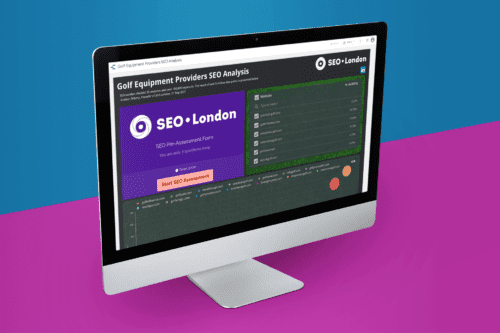The Importance of Deep Linking for Search Engine Optimization (SEO)
Whether you’re creating internal or external links, you should target more than just your website’s homepage. While building links to your homepage is undoubtedly important for search engine optimization (SEO), deep linking is equally if not more important. It will make your website more appealing to visitors and search engines alike, all while encouraging higher search rankings in the following ways.
What Is Deep Linking?
Deep linking involves the creation of links to web pages other than your website’s homepage. Rather than linking to your homepage, such as example.com, you link to deeper-level web pages, such as example.com/article-title or example.com/category/article-title. When you create an external or internal link to any web page on your website besides the homepage, it’s considered deep linking.
Encourages More Indexed Web Pages
Search engines will index more of your website’s pages if you perform deep linking. Google and Bing have become highly proficient at identifying newly published web pages. When you publish a new web page, the two search engines will likely discover it — but only if there’s a link pointing to the web page.
If you only link to your website’s homepage, Google and Bing won’t know about the newly published web page and, therefore, won’t add it in their respective search engine results pages (SERPs). Deep linking, on the other hand, helps search engines find your website’s pages, resulting in more web pages being indexed in the search results.
Improves Quality of Your Website’s Content
Deep linking can improve the quality of your website’s content. It’s no secret that search engines assess the quality of a website’s content in their ranking algorithm. According to Google, content quality is one of the search giant’s most influential ranking signals. If your website’s content lacks the quality of a competing site’s content, it won’t attract as many visits from search engine users.
Content with deep links is considered more useful for visitors than content with only homepage links because it directs them to relevant web pages. When preparing an article or blog post, scan the text for words or phrases that are used in the titles of other web pages on your website. You can then use the word or phrase as anchor text for an internal link to the relevant web page.
More Your Website More Navigable
When used to create internal links, deep linking will make your website more navigable. When visitors read your website’s content, they’ll see the internal links pointing to other pages on your site. If a visitor wants to learn more about a topic associated with a link’s anchor text, he or she can click the link to visit the deep-level web page.
Visitors can still find specific web pages on your website using your site’s navigation menu. Depending on the size of your website, though, this could require visitors to browse through hundreds of page titles. Deep linking enhances your website’s navigation by providing visitors with an easier and more convenient way to find relevant content on your website.
Lowers Bounce Rate
A benefit of deep linking that’s often overlooked is a lower bounce rate. Bounce rate is a measurement of user engagement, so all major search engines will look at your website’s bounce rate when calculating its rankings.
Not to be confused with the user engagement metric exit rate, bounce rate reveals the percentage of visitors who only view a single web page during their session. If 10,000 people visited your website last month and only 2,500 visited at least two web pages during their session, your website’s bounce rate for that month would be 75 percent, which is pretty high.
An easy way to lower your website’s bounce rate is to perform deep linking with internal links. Each deep link creates an opportunity for visitors to check out another web page on your website. When a visitor clicks one of these internal links, he or she won’t be counted as a bounce upon leaving your website.
Diversifies Your Website’s Backlink Portfolio
Deep linking allows you to create a more diverse, natural-looking backlink portfolio for your website. Building backlinks only to your website’s homepage sends the message to search engines that you are trying to manipulate the rankings of your homepage. As a result, search engines won’t increase your website’s rankings. If all or most of your website’s backlinks point to the homepage, search engines may, in fact, lower its rankings.
To compel search engines to increase and expand your website’s rankings, you must create a diverse portfolio of backlinks that targets multiple web pages. Spreading your backlinks across multiple web pages rather than only targeting your homepage creates the perception of a natural backlink-building strategy.
Increases Visitors’ Time Spent on Your Website
Visitors will spend more time on your website if it contains internal links to deep-level web pages. Deep linking allows visitors to find relevant web pages on your website with greater ease. If a visitor sees an internal link with anchor text about a topic in which he or she interested, the visitor may click it to learn more about the topic. And once on the new web page, the visitor may click other internal, deep-level links. All of this browsing keeps visitors on your website, which may convince search engines to give your site higher rankings.
Search engines consider the amount of time visitors spend on your website when determining how high it should rank in their search results. As with a high bounce rate, a consistently low average visit duration suggests visitors aren’t interested in your website’s content. Therefore, search engines will rank your website lower than competitors’ sites with a higher average visit duration. By performing deep linking, however, visitors will stay on your website while they check out the linked web pages.
You can still link to your website’s homepage, but remember to include links to other web pages as well. By deep linking to other web pages, you’ll create a more engaging and valuable website that ranks high in the SERPs.
 Published in: June 2022
Published in: June 2022
Last Updated in 2022-12-28T09:36:52+00:00 by Lukasz Zelezny



